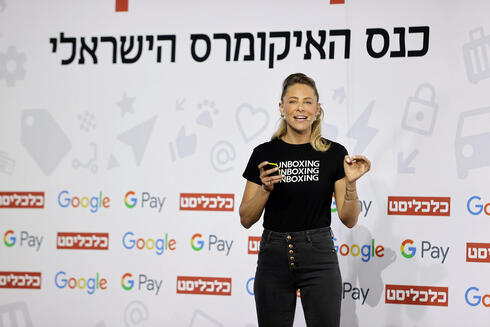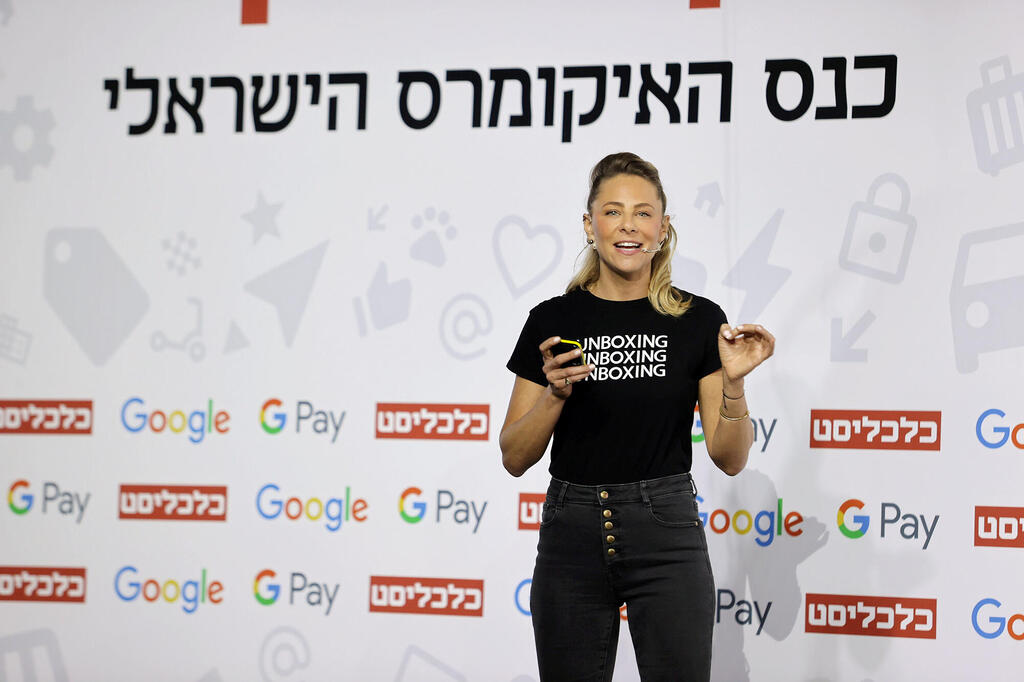
E-Commerce Conference
"Online sales in the Israeli market grew by 85% during the pandemic"
Einat Nemesh, Director at Google Israel, was speaking at the opening of the Google and Calcalist E-commerce Conference, adding that: "The next step is to move from a textual to a visual search. That is, to photograph a shoe and find where to buy it"
"Global online sales grew by 50% during the pandemic period, but in the Israeli market there was a lot of drama and online sales grew by 85%," said Einat Nemesh, Director at Google Israel, at the opening of Google and Calcalist’s E-commerce Conference.
"We started from a lower starting point, with a lower number of sites," Nemesh added. "But the pandemic has accelerated this trend upwards. The forecast now speaks of a slowdown, but this is still growth. There is very nice and large growth in all purchasing categories. In the division between the preferences of Israeli buyers between local or international sites, until the pandemic hit, the Israeli and global sites were going head to head, the demand was the same. But, since the pandemic started, 60% of searches are for Israeli sites, but in practice only 40% buy in Israel. When we search, we do it for local shopping, but when we purchase, it’s mostly international. The question is: Why do we really want to buy from Israeli sites, but in practice buy from global ones?.
According to Nemesh, there are two main explanations for this, and both are related to time. "The first is the loading time of the site," she explained. "We are too slow. The time it takes for an Israeli site, from the moment it is loaded until an action can be taken, is 6.1 seconds as opposed to 3.7 seconds on an international site. Our infrastructure is not good enough and sites in Israel are inferior to international ones. An improvement of one-tenth of a second in speed will result in an increase of 8.4% in the conversion ratio. Time is money and the data speaks for itself. It is worth improving the speed of the site so that we can bring more growth.
"The second explanation is the delivery time. We want the product we ordered to arrive as soon as possible. If two years ago, at this very conference, I explained that Israelis are mostly looking for free delivery, now they are looking for delivery in which you order today and it arrives tomorrow. This is an advantage for Israeli sites, so take advantage of it. You have to cause things to arrive as soon as possible, and people are willing to pay for it. We were sure that free deliveries attract orders, but 65% are willing to pay a premium so that the product arrives at their home faster."
Nemesh also talked about changes in consumer behavior during the pandemic. "The big headline is that we are anxious for our time spent at home, and now do all things inside. We still order home office supplies in large numbers, do exercise at home, cook, clean and do interior design. Doing everything at home, that’s not gone. But what we used to go out of the house for, has now entered the house, such as online private lessons, digital courses, and online psychological treatment."
Finally, Nemesh introduced some of Google's technological developments designed to transfer users from searching to purchasing. "First, we talk shopping," she said. “If we once searched for Air Jordans and Google pulled out sites where they could be bought, Google will now pull out direct links to the product that show a price already in the search results. At the same time, we are moving from a textual to a visual search. You can take a picture of a shoe and find where to buy it. All search engines are going in this direction.
"The next step is a combination. I go to a wedding and see a beige dress, but want to buy it in green. So I photograph the dress and write that I want it in green, and Google will show me the dress in green and where to buy it. Or if I see a pattern on a shirt and I want that pattern on a sock, I photograph the shirt and write that I want the same pattern on a sock. The world is going in that direction. Another development is the possibility of seeing products from search results in AR. For example, how a sofa will fit in the living room."















